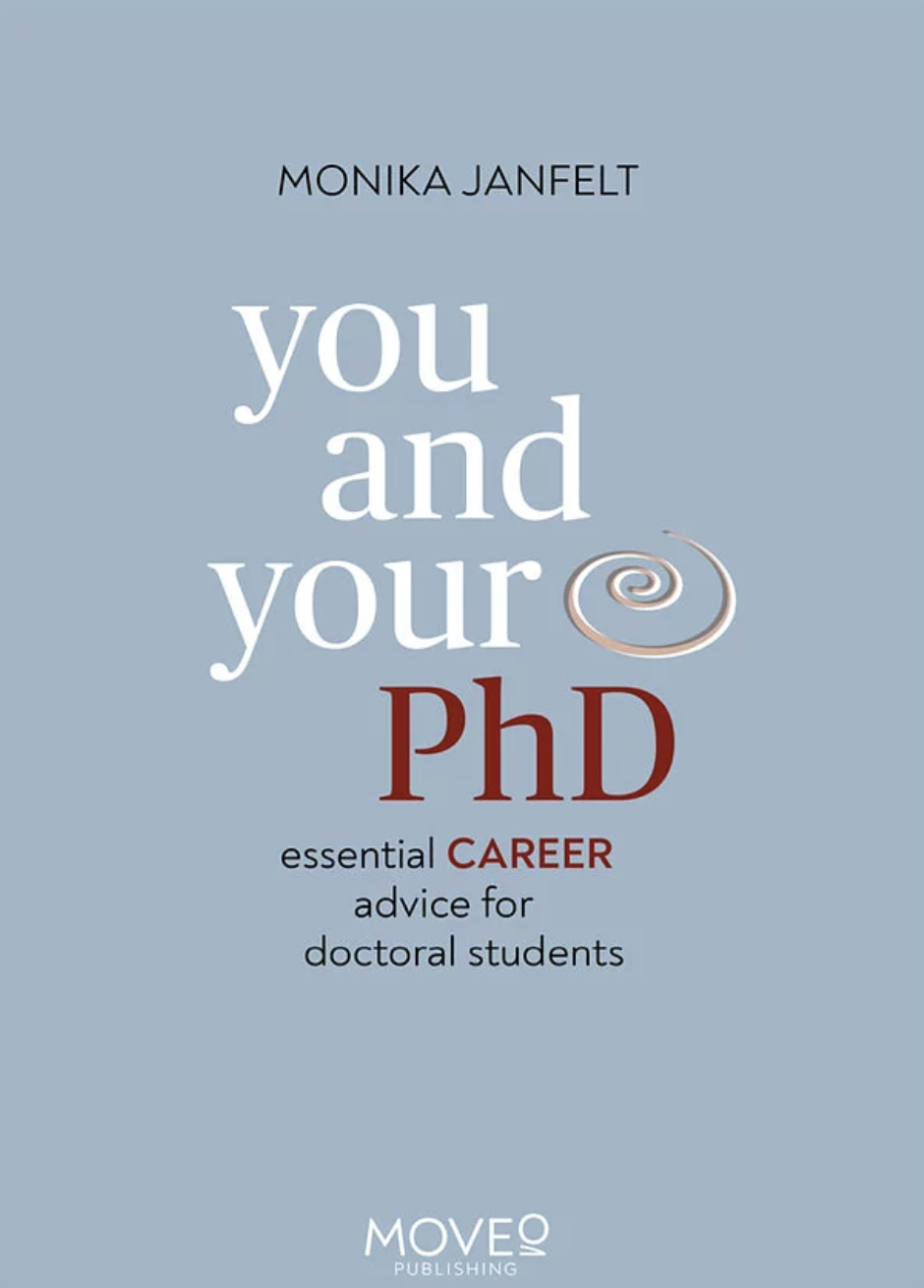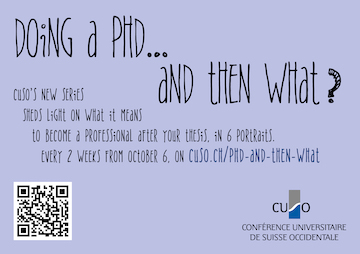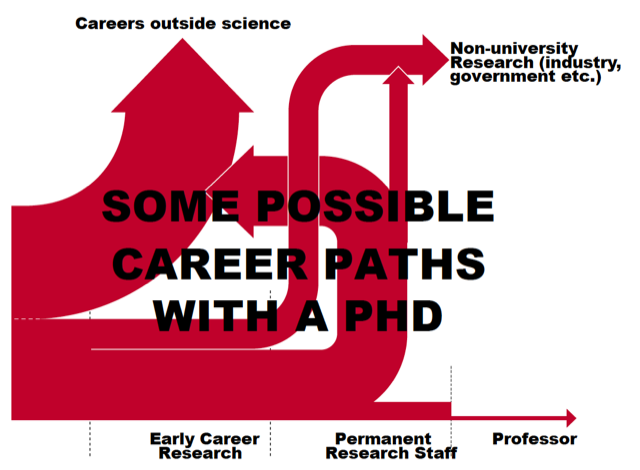 "You and your Phd" by Monika Janfelt: ten lessons to remember
"You and your Phd" by Monika Janfelt: ten lessons to remember
At the beginning of the year we launched a survey among the CUSO PhD community to better build our offer. In order to encourage as many responses as possible, those who completed the survey had the opportunity to win (by drawing lots) a copy of « You and Your Phd », the recent book by Monika Janfelt (www.moveonordic.com) about career preparation for doctoral students.

 Doing a PhD …and then what ? CUSO’s new series on the after thesis
Doing a PhD …and then what ? CUSO’s new series on the after thesis
The number of doctoral degrees awarded in Switzerland continues to grow, and statistics show that after obtaining the title the majority of graduates work in a non-academic field (public or private). It is also well documented that it is possible to move back and forth between the academic and extra-academic worlds.

 Basic Tips for Writing a Grant Request
Basic Tips for Writing a Grant Request
Summer is looming on the horizon and our blog will also enjoy a little summer break. We look forward to seeing you back in September with some new posts about the PhD. But before that, we propose you an article dealing with the writing of grant requests.
Research needs funding from third parties, mainly public funding providers. The competition to obtain research grants may be very intense, making it challenging to write a request. Indeed, the Swiss National Science Foundation (SNF) received 7’404 proposals and funded 3’465 of them in 2019, a little less than 50 %. Though writing proposals for grants may be difficult, it is an essential process for scientists who would like to have a successful research program. This process is even more difficult for early career researchers whom are trying to differentiate themselves from their colleagues and need to demonstrate their autonomy from their supervisors while developing their own new and innovative ideas and concepts. For our last post of the season, we present you some basic tips that may help you to write a successful research grant request. Think also about the courses proposed by the CUSO transversal program regarding this topic.

 Virtual Networking, Research and Work: A Mini Guide to Get Started
Virtual Networking, Research and Work: A Mini Guide to Get Started
Last week, we made some suggestions for the development and maintenance of your professional networks. Among others, we mentioned the importance of building an online presence, via virtual networks. Today we would like to take a look at the most important platforms in Switzerland that are useful for this purpose and reflect on their advantages and limitations.
Please note that this post does not concern mediasharing (e.g. SlideShare, YouTube, Vimeo...), datasharing (e.g. Dryad Digital Repository, Mendeley...), codesharing, nor traditional office tools (email, shared agenda, slack, MIRO...), nor blogs.

 Developing and Maintaining a Professional Network during the PhD and beyond
Developing and Maintaining a Professional Network during the PhD and beyond
Establishing and maintaining a professional network is essential for doctoral candidates – not only while studying, but also for their professional future whether in the private sector or in academia, as we recently discussed in one of our last posts.
Networking is based on sharing and exchange, voluntary collaboration and the principle of reciprocity. It allows you to develop your career and to create cooperative partnerships during the entire professional life, and not only just after the end of the PhD. In addition, discussing and collaborating with colleagues from different cultures and backgrounds is an extremely enriching experience for your own personal development. Here, we propose some suggestions and ideas to proactively build, grow and maintain a professional network. Please also note that a specific Transversal Program workshop (Proactive Managing Relationships and Networks) has been conceived to improve your skills in networking!

 What career path after my doctorate?
What career path after my doctorate?
Did you know that in Switzerland only 33% of PhD graduates embark on an academic career after completing their thesis? According to a study by the Federal Statistical Office (FSO) published in 20181, more than 58% of young PhDs in Switzerland are working in another field one year after the end of their thesis. The doctorate is therefore not only the first step for any academic career, but often represents the first stage for plenty of professions.




 Blog en français
Blog en français